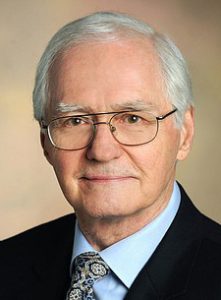Much has been made of President Joe Biden’s stepping aside in favor of Vice President Harris as the Democratic Party candidate for president. It’s a clear example of how powerful not doing something can be.
Tons of ink and hours of broadcast time have been spent speculating on the effects of this non-action: Biden’s not running for a second term.
It’s a slippery notion, ghost actions, and there are several ways to put it into words. Here are some. When it is widely recognized that what one could do but did not do has social effects, we have a ghost action.

Richard Conville
A ghost action, then, is (1) an action that is potential (even very likely to happen), but (2) said action does not happen, and (3) observers take note of that nonaction, then (4) try to assess its effects.
Ghost actions are close cousins of that informal management theory that says, in the face of a crisis, “Don’t do anything. It’ll take care of itself.” The “it” may be a difficult colleague, a financial crisis or an unscrupulous competitor. Not acting then becomes an action, paradoxically.
Why do I say that? Because not acting may be what solves the problem.
Acting — by not acting — the difficult colleague may decide to be a team player; the next finance report may improve due to external economic conditions; and that unscrupulous competitor may decide fair play is in their self-interest.
Ghost actions are influential on a personal level too. You may have seen a couple of football games last weekend. Sometimes a corner back gets tangled up with a wide receiver (on purpose or by accident) and words are exchanged; a punch may be thrown. When the player who is punched retaliates, a fight may ensue, or the teams may get into a full-on brawl.
“Ghost actions are influential on a personal level too.”
But what about not acting? If the offended player does not act (does not retaliate) but simply walks back to the huddle, typically it’s all over and play continues as usual. The ghost action of not retaliating when he could has influence: There’s no fight; there’s no brawl and normal play continues.
Apply the concept to a friendship or a marriage. Let’s say your friend or spouse says something you strongly disagree with. You can let it slide (not act), or you can strongly disagree (act). If you choose the latter, you run the risk of starting an argument. We human beings rarely change our minds when we are on the defensive — when we are in the middle of an argument.
Either way, whether you let it slide (by not acting) or whether you disagree (acting), you influence the outcome of the conversation. A benefit of thinking in terms of ghost actions is that it causes us to ask the question: what do I want the outcome of this conversation to be? It reminds us that not acting is a powerful move in any interaction.
Finally, with the presidential election fast approaching, consider how not acting could work when discussing your choices for president. Often, “letting it slide” (not acting) is the best course of action when someone says something outlandish about your candidate. Arguing may not be very helpful or even useful. Most arguments raise our defenses, harden our positions and shut off learning.
But what can you do if you want a thoughtful conversation about the candidates? After you have let it slide by not acting (when you could have acted), when you heard that outlandish statement about your candidate, one way to continue that conversation is to simply ask your friend or acquaintance about their choice. Ask them to tell you about their candidate — what they like about them, how they first became aware of them.
Then listen without interrupting and ask thoughtful follow-up questions. Be genuinely curious, inquiring about such things as when they made their choice and what were some of the influences that led them to that decision. Were there particularly influential people or events involved?
Sounds simple, doesn’t it? But of course political dialogue is not simple. Political positions are the culmination of a person’s full life experience: overheard conversations as a child, school achievements and humiliations, income and social class, age, best friends, books read, parents, extended family, loyalties and disappointments, media use, travel, religious affiliation, lies told and lies untold.
We haven’t really had a political discussion until we’ve drilled down to this level. While it’s not easy, it’s absolutely necessary in order to build the communities that our democracy depends on.
Richard Conville is a retired professor of communication studies and long-time resident of Hattiesburg, Miss.


